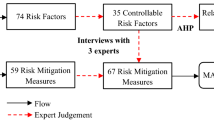Abstract
Acting locally is essential to start working to limit the climate change impact and to reduce substantially and constantly GHG emissions. Indeed, the lack of GHG emissions quantification tools in real time and at local level, makes it difficult for public decision-makers to focus efforts and resources efficiently against climate change. In this paper, we propose an agent-based approach applied to an integral management tool to quantify GHG emissions in an accurate and up to date manner. The management tool ensures automatic and reliable management of large volumes of information minimising human interventions. The integral management tool is being tested in a pilot action in a medium-sized city in Eastern Spain (Llíria) to convert it into an innovative and sustainable Smart City.
Access this chapter
Tax calculation will be finalised at checkout
Purchases are for personal use only
Similar content being viewed by others
References
Bhatia, P., Cummis, C., Brown, A., Rich, D., Draucker, L., Lahd, H.: Corporate Value Chain (Scope 3) Accounting and Reporting Standard. Supplement to the GHG Protocol Corporate Accounting and Reporting Standard, pp. 1–152 (2012). http://www.ghgprotocol.org/sites/default/files/ghgp/standards/Scope3_Calculation_Guidance_0.pdf
Dodman, D.: Forces driving urban greenhouse gas emissions. Curr. Opin. Environ. Sustain. 3(3), 121–125 (2011)
European Commission: Covenant of Mayors: Greenhouse Gas Emissions Achievements and Projections. Publications Office of the European Union (2016)
Hamblen, M.: Just what IS a smart city? (2015). https://www.computerworld.com/article/2986403/internet-of-things/just-what-is-a-smart-city.html
Ibrahim, N., Sugar, L., Hoornweg, D., Kennedy, C.: Greenhouse gas emissions from cities: comparison of international inventory frameworks. Local Environ. 17(2), 223–241 (2012)
IPCC: 2006 IPCC Guidelines for National Greenhouse Gas Inventories. Task Force on National Greenhouse Gas Inventories (TFI) (2006). http://www.ipcc-nggip.iges.or.jp/public/2006gl/pdf/0_Overview/V0_1_Overview.pdf
IPCC: Climate Change 2014: Mitigation of Climate Change: Contribution of Working Group III to the Fifth Assessment Report of the Intergovernmental Panel on. Cambridge University Press, 1132 pp. (2014). http://www.ipcc.ch/pdf/assessment-report/ar5/wg3/ipcc_wg3_ar5_full.pdf
Kaplan, R.S., Norton, D.: Using the balanced scorecard as a strategic management system. Harvard Bus. Rev. 74, 75–85 (2007)
Kennedy, C., Demoullin, S., Mohareb, E.: Cities reducing their greenhouse gas emissions. Energy Policy 49, 774–777 (2012)
Lin, T., Yu, Y., Bai, X., Feng, L., Wang, J.: Greenhouse gas emissions accounting of urban residential consumption: a household survey based approach. PLoS One 8(2), e55642 (2013)
Padgham, V.L., Winikoff, M.: Developing Intelligent Agent Systems: A Practical Guide. Wiley, Chichester (2005)
Ramaswami, A., Bernard, M., Chavez, A., Hillman, T., Whitaker, M., Thomas, G., Marshall, M.: Quantifying carbon mitigation wedges in U.S. cities: near-term strategy analysis and critical review. Environ. Sci. Technol. 46, 3629–3642 (2012)
Rauland, V., Newman, P.: Counting carbon in cities. Green Energ. Technol. 207, 117–130 (2015)
Rogers, A.: Agent technologies for sensor networks. Comput. J. 54(3), 307–308 (2011)
Author information
Authors and Affiliations
Corresponding author
Editor information
Editors and Affiliations
Rights and permissions
Copyright information
© 2019 Springer International Publishing AG, part of Springer Nature
About this paper
Cite this paper
Lorenzo-Sáez, E., Oliver-Villanueva, JV., Luzuriaga, J.E., Mateo Pla, M.Á., Urchueguía, J.F., Lemus-Zúñiga, LG. (2019). A Cooperative Agent-Based Management Tool Proposal to Quantify GHG Emissions at Local Level. In: Jezic, G., Chen-Burger, YH., Howlett, R., Jain, L., Vlacic, L., Šperka, R. (eds) Agents and Multi-Agent Systems: Technologies and Applications 2018. KES-AMSTA-18 2018. Smart Innovation, Systems and Technologies, vol 96. Springer, Cham. https://doi.org/10.1007/978-3-319-92031-3_24
Download citation
DOI: https://doi.org/10.1007/978-3-319-92031-3_24
Published:
Publisher Name: Springer, Cham
Print ISBN: 978-3-319-92030-6
Online ISBN: 978-3-319-92031-3
eBook Packages: Intelligent Technologies and RoboticsIntelligent Technologies and Robotics (R0)




